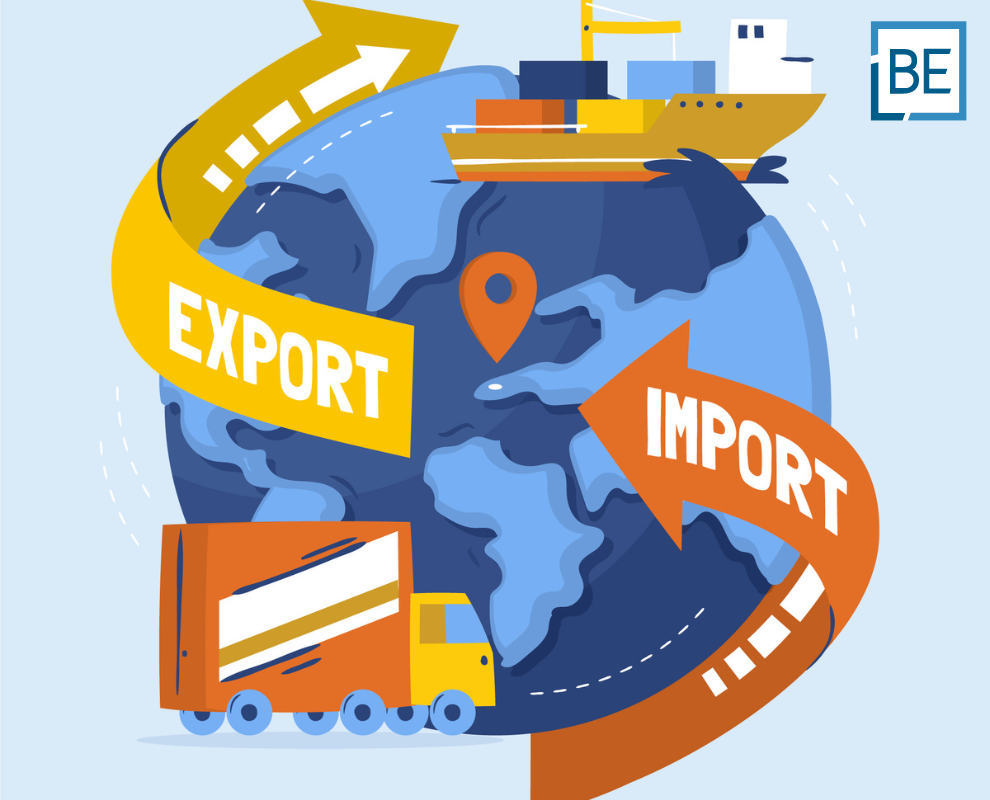Legal
How do I get an import/export license in Thailand?
31/10/2022
Import/export companies are a popular choice of business for many entrepreneurs around the world. The Thai market offers many products which are not available abroad and vice versa. While importing/exporting goods is a very desirable business, such companies will require certain business licenses in order to legally operate in Thailand. However, the license required will depend on the category of goods being imported/exported.
For more information about business licences in Thailand, please take a look at our blog post on the subject here.
Key points
- Any companies or individuals who are involved in the import and export of products, goods and raw materials in Thailand, are required to apply for an import/export customs paperless license.
- Some products are prohibited for import/export and some products may require further specific licenses.
- Export businesses are one of the few activities that can be carried out by a 100% foreign-owned company without any licence, as long as there is no distribution in Thailand.
What are import/export licenses?
Any companies or individuals who are involved in the import and export of products, goods and raw materials in Thailand, are required to register with the Thai customs office and apply for an import/export customs paperless license for such activities. It is essential companies obtain this licence in order to be able to import/export goods under the company’s name.
Companies should also be aware that importing/exporting controlled goods may require further specific licenses from the regulatory bodies depending on the type of products.
Import license and controls
The Thai Ministry of Commerce stipulates that certain goods may also require a further licence (outside of the import/export licence) being obtained before companies can import them.
Currently, there are about 50 categories of goods requiring an import license and are subject to other controls from other laws. For example:
- The importation and exportation of hazardous chemical substances are required to obtain the licence with the Ministry of Industry.
- The importation of electronic devices with radar frequency must obtain a permit from the National Broadcasting and Telecommunication Department of Thailand.
- The importation of pharmaceutical products (medicines) requires a Food and Drug Administration authorization from the Ministry of Health.
- Importing and exporting minerals into Thailand are subject to licence requirements with the Department of Mineral Resources.
- Antiques, artefacts, and historical artefacts may not be shipped without authorization from the Director General of Fine Arts
- Weapons, ammunition, explosives, fireworks and prohibited firearms are prohibited from the production, purchase, use or import unless they have the appropriate license from the Ministry of Interior.
- To protect public health, the importation of cosmetic products must be accompanied by the name and location of the office and place of manufacture of the products and their name and composition.
- Wood, lumber, and wood products imported from Thailand’s neighbouring countries through land transportation must obtain a Certificate of Origin or Export Permits from the countries exported.
- Controlled herbs under the Ministerial Regulations such as Cannabis are subjected to obtain import/export license before engaging in such activities.
How do you apply for an import/export license?
1 – Register your business to use the e-Customs System
All activities relating to the import and export of goods into Thailand are done via the online e-Customs system.
In order to use this system, companies must obtain a digital certificate. This digital certificate will be used to confirm the identity of the person or entity using the system.
Registration for the e-Customs system can be done by the company themselves, or through the use of an agent.
To register for the e-Customs system the company is required to:
- Install e-Customs software on the company systems
- Register with the Thai Customs office
- Test and check the e-Customs system is active and can be used by the company.
Once the registration procedure has been completed, the Communication and IT Bureau will issue an e-Customs registration ID to the company.
2 – Review controlled goods
As mentioned above, some goods and products are controlled and require additional permits to be obtained before they can be imported or exported. It is essential for companies to check with the Customs Department as to whether the goods they plan to import/export requires a permit.
Red Line Goods
Thailand classifies red line goods as those which are considered to be high risk or require extra verification and certification.
It is important to note that there is no definitive list of red line goods available. In order to establish whether goods can be classed as red line or not, a decision will be made upon application (more information about this can be found below in point 3).
Common examples of red line goods include food products, drinks and plants. If a business plans to import such goods they will need to be able to provide a number of supporting documents such as:
- Bill of Lading or Air Waybill
- Invoice
- Packing list
- Import License
- Certificates of origin
- Other relevant documents (e.g. list of ingredients, technical standard certificates etc.)
Exporting Red Line Goods
If a company plans to export red line goods, extra documentation such as the following will be required:
- Invoice
- Export License
- Other relevant documents (e.g. food and drug administration approval, destination information etc.)
3 – Submission and verification of a declaration
All import/export companies are required to submit an Import or Export Declaration. This declaration includes the following supporting documents:
- K1 application (pages 1 and 2)
- Copy of the company affidavit (updated within six months)
- Two copies of value added tax certificate (Phor Phor 20)
- Copy of first page of bank account and bank statement
- Copy of seal registration (BAJ 3)
- Copy of passport
- Power of attorney (page 3 of the K1 application)
Submission will identify whether the goods contained in the shipment are red line or green line. Furthermore, these documents will be used to determine the duty calculation, customs tariff and valuation of goods.
4 – Payment of duties and taxes
Any owed import/export duties and taxes must be paid by electronic fund transfer through the Bank of Thailand’s BAHTNET, Kung Thai Bank and EDI. If this is not possible, payment can be made in person at the Customs Department.
- Imported/exported products to Thailand are subject to tariffs in Thailand. The import duties rate is applied by the Harmonized System.
- The duties are based on CIF value or FOB value or both, whichever has more value.
- Tax incentives for tariffs are provided in form of tax exemptions, tax returns, investment promotions etc, according to applicable conditions and criterias.
- The exemptions of the tariff duties are applied to the import/export of some products.
- The document relating to tariffs shall be kept as a record for 5 years from the import/export date and another 2 years after dissolving the company.
5 – Inspection and release of cargo
Once all of the above has been completed, Thai Customs requires the importer/exporter to submit the verified Declaration (along with a receipt for the payment duties and taxes) to the warehouse. Once these documents have been received, the cargo will undergo an inspection before being released.
For green line goods, all that is required is a simple online screening. Red line goods, including the supporting documents and the cargo itself will be physically inspected by customs officials.
It is essential that all the inspected cargo must correspond with the submitted Declaration.
How long does the application process take?
Typically, companies can expect to receive a decision within one day after the submission of the application.
The import/export license is valid for a period of three years.
What documents are required?
The documents required for an import/export licence are as follows:
- K 1 application (only 1st and 2nd pages)
- Copy of company affidavit (updated within six months)
- Two copies of value added tax certificate (PP 20)
- Copy of first page of bank account and bank statement
- Copy of seal registration (BAJ 3)
- Copy of passport
- Power of attorney (The 3rd page of KSK 1)
How can Belaws help?
For more information about import/export licences in Thailand, why not talk to one of our experts now?
Please note that this article is for information purposes only and does not constitute legal advice.
Our consultations last for a period of up to 1 hour and are conducted by expert Lawyers who are fluent in English, French and Thai.
Consultations can be hosted via WhatsApp or Video Conferencing software for your convenience. A consultation with one of our legal experts is undoubtedly the best way to get all the information you need and answer any questions you may have about your new business or project.
USD 150
Up to 1 hour
Online payment (Paypal or Credit card)
Legal consultation can be conducted in English, French or Thai
Legal consultations are handled by experienced lawyers from the relevant fields of practice
Frequently asked questions
Can a foreigner open a company in Thailand?
Yes it is possible for a foreigner to open a company in Thailand. There are also options available which allow 100% foreign owned companies as well.
How much does it cost to set up a company in Thailand?
The official fees for registering a company in Thailand are THB 7,500.
How do I start a limited company in Thailand?
- Step 1: Choose and register a company name.
- Step 2: Draft and file the Memorandum of Association.
- Step 3: Call and hold a Statutory Meeting of the shareholders
- Step 4: Register the Company with the Ministry of Commerce.
- Step 5: Register the company for Value-Added Tax (VAT) and Income Tax
Is it good to start a business in Thailand?
Thailand is an attractive option for those wishing to start a business. Thailand has a great infrastructure in place and scheme such as the BOI provide great incentives for companies to take advantage of.
How much money do you need to start a business in Thailand?
Typically, it costs between THB 40,000 to THB 60,000 (excluding VAT and Government fees) to start a business in Thailand.The official fees for registering a company in Thailand are THB 7,500.
How can a foreigner start a small business in Thailand?
Yes, foreigners can start a business in Thailand. However, certain business activities are restricted by the Foreign Business Act and in order for businesses to undertake them they must obtain a Foreign Business Licence/Certificate which can be time consuming and complicated.
What is the biggest problem in Thailand?
The biggest problem facing foreign owned companies is being able to undertake their desired business activity as a 100% foreign owned company. Many business activities are protected by the Foreign Business Act and in order for a company to operate in these protected industries, they will be required to be majority owned by Thai Shareholders (unless a BOI promotion has been obtained).
Why is it hard to do business in Thailand?
The Foreign Business Act limits to the business activities a 100% foreign owned company can undertake. This means Thai Shareholders will need to be sought or a BOI promotion obtained in order for a company to legally operate.
Can I own a company in Thailand?
Yes, foreigners can start a business in Thailand. However, certain business activities are restricted by the Foreign Business Act and in order for businesses to undertake them they must obtain a Foreign Business Licence/Certificate which can be time consuming and complicated.
Related articles
Subscribe today
Subscribe today
To our newsletter for all the latest legal news
in South East Asia, Belaws updates and
special promotions on our services.
To our newsletter today for all the latest legal news in South East Asia,
Belaws updates and special promotions on our services.







